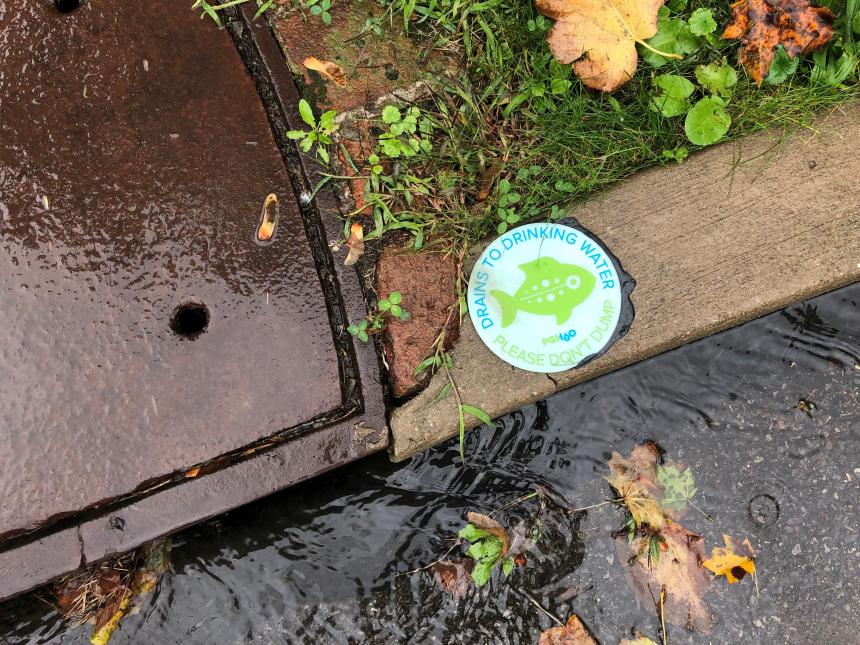
Pittsburgh, PA - As the changing of the seasons brings fallen leaves, many residents take to their yard to rake leaves, prune plants, and prep gardens for winter. While these chores are essential for a healthy yard and garden, taking the extra step to bag or compost leaves and yard debris will improve the performance of our storm drains when it rains.
More than 25,000 storm drains are spread across Pittsburgh’s streets to capture stormwater and redirect it into our sewer system. When it rains, leaves, grass clippings, trash, pet waste, fertilizer, and other pollutants left on the ground are washed away by stormwater into storm drains.
Debris like leaves, grass clippings, and trash can block and clog storm drains, preventing stormwater from entering the sewer system. This can cause water to pond on the street, which presents safety hazards for vehicles and pedestrians. This flooding can also damage homes and businesses.
In some areas of the city, dedicated storm sewer pipes carry water directly to our streams and rivers. In other areas, stormwater enters combined sewer pipes and mixes with sewage on its way to ALCOSAN, the regional wastewater treatment facility. However, rainstorms often overwhelm the combined sewer system, causing stormwater and untreated sewage to overflow into our streams and rivers. When pollutants carried by stormwater enter our rivers and streams, they harm local water quality, public health, fish and wildlife, and recreation.
PWSA and the City of Pittsburgh are working together to reduce local flooding and river pollution by sweeping streets, removing debris from storm drains, and constructing new green infrastructure that captures, filters, and holds stormwater. We cannot do it alone though; we need all Pittsburghers to do their part to help keep our community clean. This fall, after raking leaves and grass clippings, either compost them at home or put them in a paper bag at your curb for pickup during the City’s scheduled Yard Debris Pickup Day – taking place November 13th.
“Many people do not realize just how quickly leaves and other debris left on the ground can clog storm drains during downpours,” stated Will Pickering, Chief Executive Officer of the Pittsburgh Water and Sewer Authority. “Making small changes to your yard care routine this fall will protect your neighbors and the three rivers.
Help Protect Your Community and Our Rivers:

- Do not rake or blow leaves or grass clippings off your property into the street. Do not pile leaves or other yard waste near storm drains.
- Place your leaves in a paper bag for curbside yard debris collection or compost them at home. If you have a mulching lawnmower, use it to recycle leaves and their nutrients into your lawn.
- Only fertilize if necessary and do not overapply. Select slow-release and organic fertilizers, which are less likely to wash away. Fertilize lawns or gardens in the fall to promote root growth and prevent nutrients from washing away during spring rains.
- When walking your pet, always bring a bag to scoop up waste. Make sure to clean up after your pet in your own yard, especially before it rains. Dispose of bagged pet waste in a trash can.
- Do not dump yard waste, trash, pet waste, or other waste into storm drains.
- Where safe to do so, clear leaves, trash, and other debris off of storm drain grates and dispose of them properly in the trash. However, never reach inside a storm drain or lift the grate.
- If you see a clogged or broken storm drain, please call our 24/7 Dispatch at 412-255-2423 (Press 1), contact us @pgh2o on Twitter, or fill out our Report an Issue webform so that we can send a crew out.
Learn more at www.pgh2o.com/reducing-stormwater-pollution.


